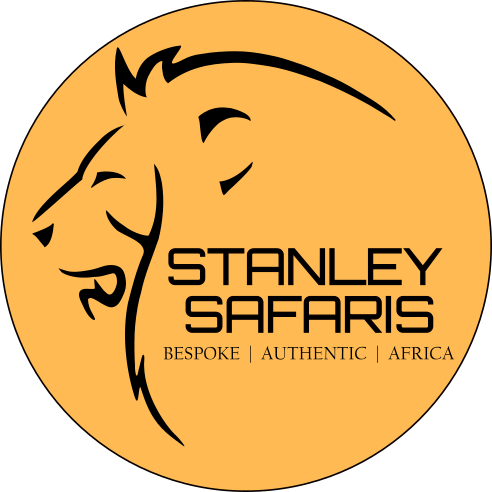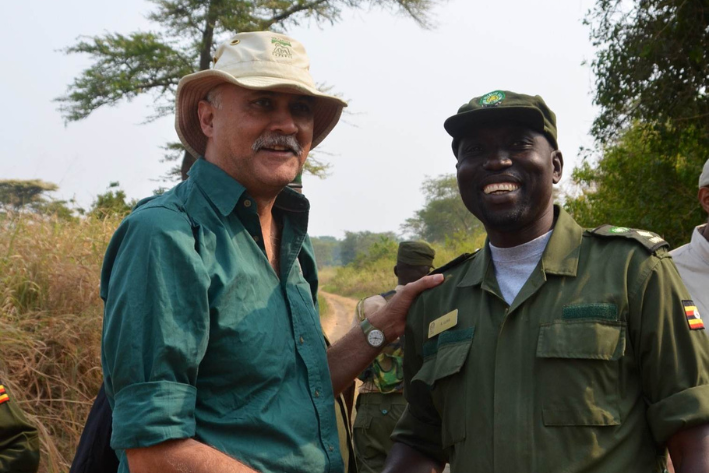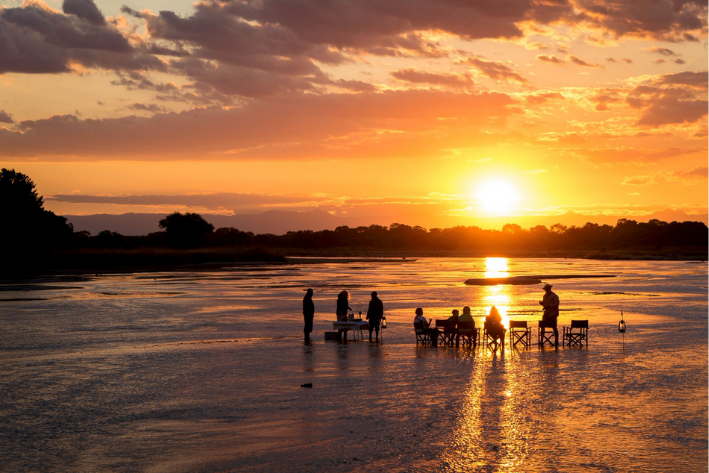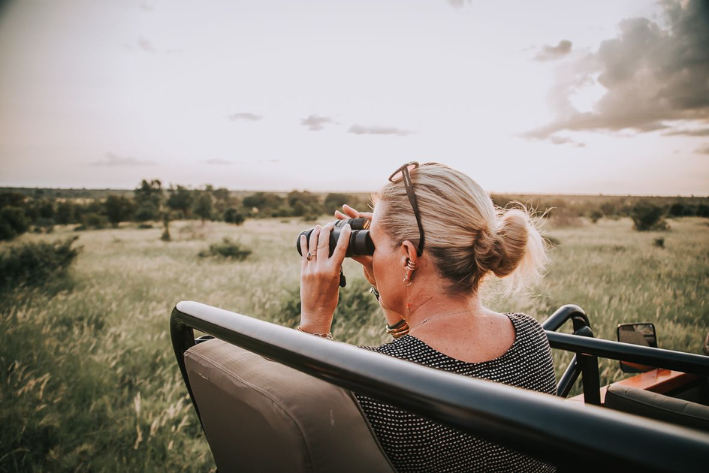We meet Beks Ndlovu
An inspirational and pioneering journey to success
In the latest installment of our “Introducing” series we chat to the founder of African Bush Camps, Beks Ndlovu and learn about the game-changing path he’s taken to reach the pinnacle of the safari industry in Southern Africa, all while making an enormous difference to people and planet..
For many in the safari industry, Beks Ndlovu is a legend, a local lad made good and a true tourism “mensch”. His humility, thoughtfulness and considered, committed approach to business is held up as an example of how ethical, sustainable and responsible tourism can make a meaningful impact and have benefits that ripple out to those on its periphery.
For Beks, making a difference is the foundation on which he’s built his career and one of the most successful safari brands on the sub-continent, with 17 camps spread across three countries – Zimbabwe, Botswana and Zambia. It’s a journey that started with questions asked by a curious child peering over the fence of his home in the small mining town of Hwange, Zimbabwe.
“Growing up as a kid, I would see safari vehicles going past my house and remember thinking ‘where are they going? What are they doing? On cold winter morning’s I’d ask myself ‘why are they punishing themselves being in an open vehicle when it’s freezing cold?’ I had no idea what tourism was. Or why people did it,” recalls Beks.
These questions were put to the back of his mind until two years before he left school, when he began volunteering in local safari camps during the holidays.
“My guiding journey and the inspiration to get into the safari industry began then,” says Beks. “I think like everyone, I was scrambling to decide what to do when I left school, was I going to university? Was I going to get a trade? Then I got the opportunity to volunteer in safari camps with older friends who had already left school and my eyes were opened to what those people in those vehicles had been doing all those years before.”
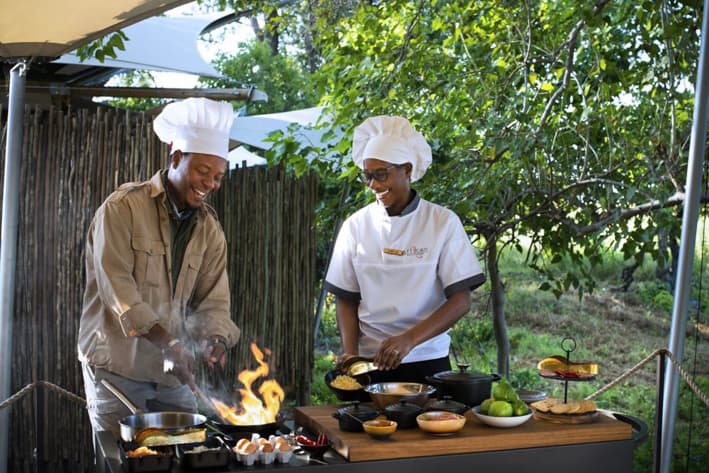
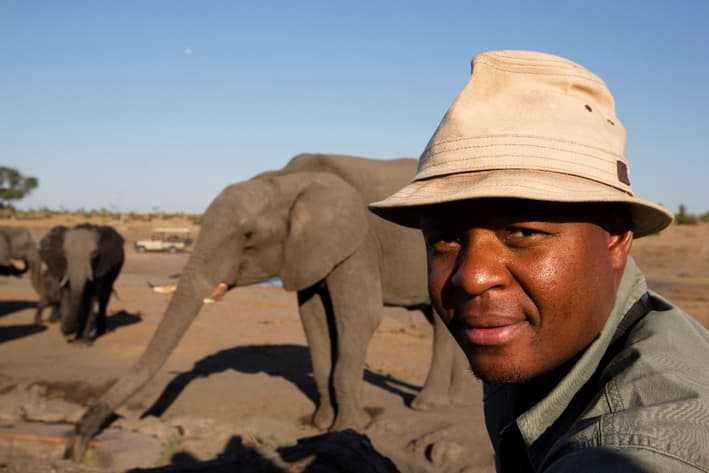
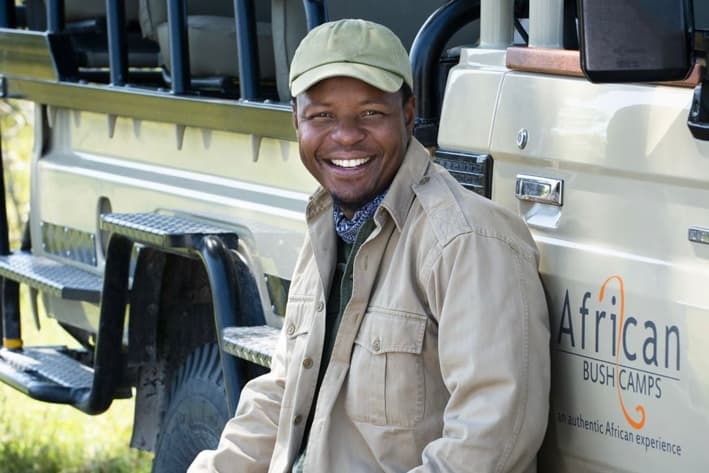
A Guiding lesson learned early on
Growing up in Hwange town in a small coal-mining village the Ndlovu family had a lush garden that Beks’ mother had lovingly cultivated. It was filled with banana trees and all sorts of vegetables – lots of lovely things that are attractive to local wildlife…
“One evening we had a herd of elephants in our garden,” says Beks matter-of-factly. “They flattened the fence, got into the garden and my whole family armed themselves with pots and spoons and went out to make as much noise as possible, banging on those pots to scare the elephants off.
“This was hugely exciting and first thing the next morning, thinking I was the last of the big trackers, I got up and decided to follow the trail of footprints and dung of the raiding elephants into the nearby wilderness area. We lived right on the outskirts of Hwange National Park and like most children in villages like mine, you learn the basics of tracking following village cattle or goats.
“I caught up to this herd of elephants not having a clue whether they had good eyesight or if they would smell me if the wind was wrong. So I sat there watching this small family group of elephants made up of mostly cows. I had no idea at that stage that going after cows on foot was a no-no!
“I sat there and all of a sudden the wind must have turned and taken my scent straight to the elephants. This cow picked it up and spun around, immediately charging. Without hesitation I jumped up and took off, and was surprised that this elephant was making quite a bit of progress coming after me! If it wasn’t for a drainage line that I jumped over as I ran that the elephant stopped at, I don’t think I would be here to tell the story!
“Lesson one in my future guiding career – whatever you do don’t run!”
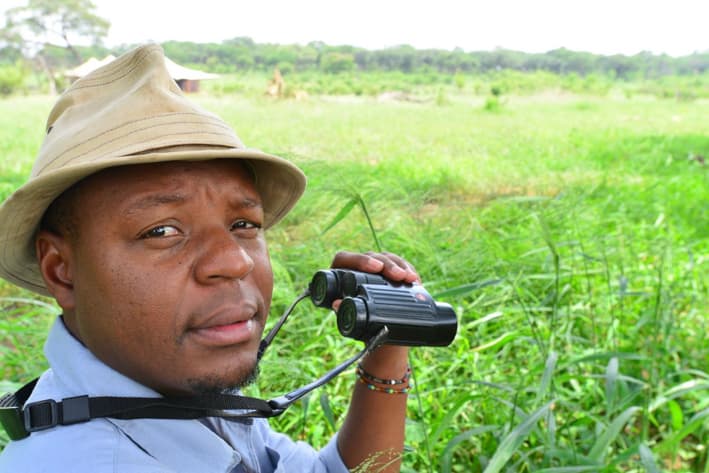
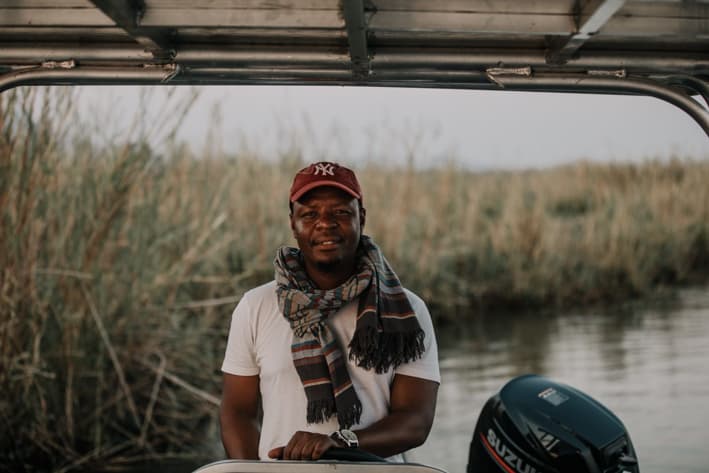
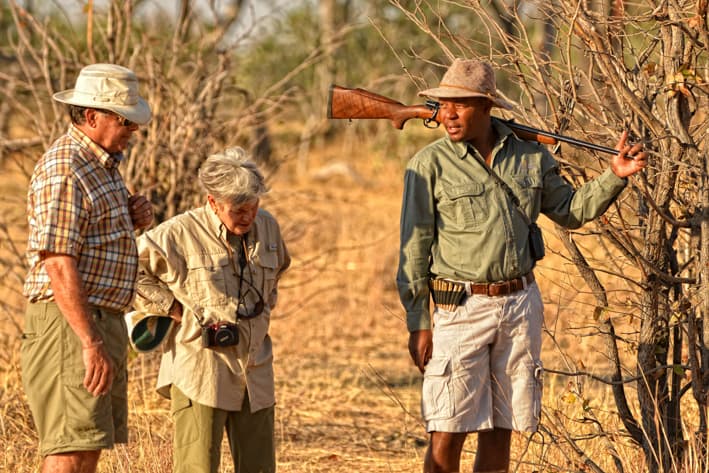
From gofer to guide
During his school holidays, safari camp volunteer Beks did anything and everything, from cleaning safari vehicles to delivering them to the front of house in time for game drives, packing firewood, lighting boilers, waiting on tables and serving behind the bar… “I’d get to go on the odd game drive with the guides and on the occasional bush walk and I suddenly realised that my capacity for learning was not restricted by the four walls of a classroom,” he explains.
“After school I dreaded being constrained by four walls for another four years of learning at university. I was pretty impatient to get out into the workforce and because of the exposure I had had with my volunteer work I had multiple job offers from safari operators, so that’s where my guiding career kicked off. I didn’t look back and gave university and studying a skip and became a trainee guide.”
Beks’ first job was in a camp just outside Hwange National Park, which is an area not too far from where he was born and raised. “Looking back, it was a fortuitous moment made all the more poignant by the fact that in 2006 I would open my first camp in the same area, completing a wonderful circle that brought me back to my roots,” he says wistfully.
Beks the guide also pondered on the huge disconnect between tourism and everyone not involved in it, especially those in the communities like his on the edge of it, watching those game vehicles go past and wondering what it was all about, not receiving any benefit from it. It was something that disturbed him and that he wanted to correct.
“I saw this gap in understanding,” says Beks. “So I wanted to change things and create a better understanding of tourism and its benefits for the communities like mine on the ‘outside’ – those people in safari vehicles are tourists, tourists go to a place that’s attractive and full of wildlife, there’s wildlife there because it’s a wilderness area, there’s a wilderness area because it’s been conserved and protected, if we don’t protect and conserve the wilderness the tourists won’t come and our economy will suffer…”
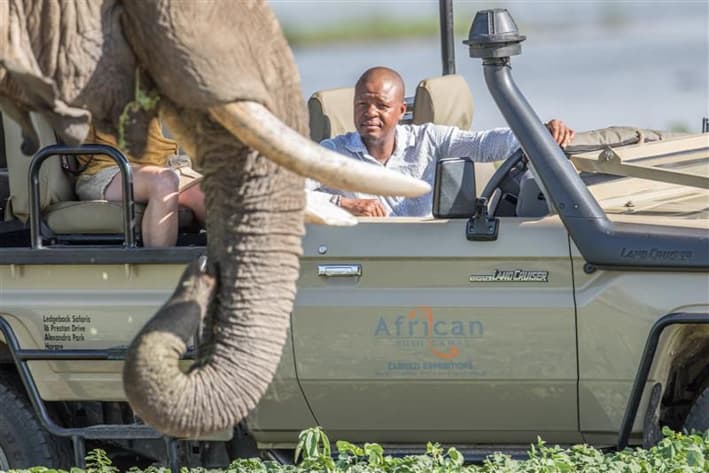
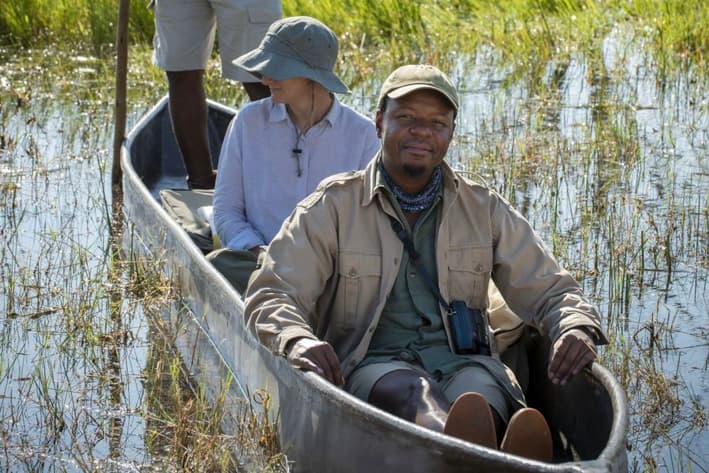
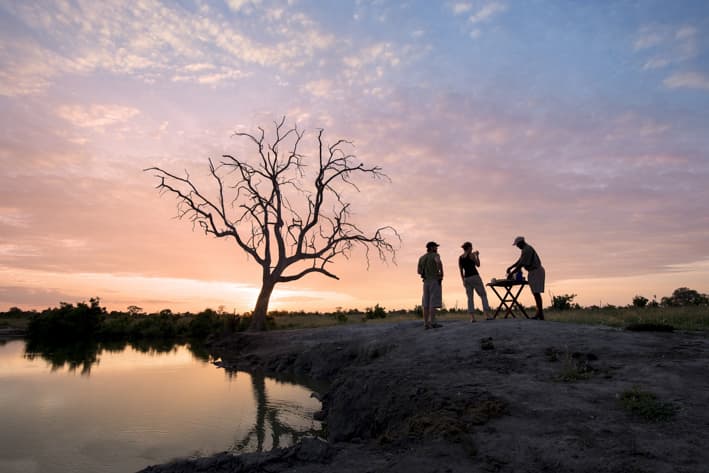
Doing his own thing
Beks says he’s been hugely fortunate throughout his career to have met some wonderful characters and safari industry legends, each of whom have inspired him in different ways. “I had a number of people during my guiding career who I spoke to – some taught me a lot about what to do and some taught me a lot about what not to do,” he laughs.
“Owning my own camps was not always a dream of mine,” says Beks. “I did my guiding training and got my licence. From guiding I got into the management of camps, from camp manager I was promoted to running operations. I gradually got more involved in marketing and then I broke out and started doing privately guided safaris across Africa, which gave me the opportunity to see so much more of this beautiful continent and interact so much more with different colourful tribes and people.”
At that stage of his guiding career, starting a safari camp business was scary and not the obivous career path. “I never imagined that I would have my own camps because I knew what it took to run a camp and knew that sometimes it’s an operational nightmare. Running a camp is very absorbing and demanding on your time,” explains Beks.
“But having travelled through different parts of Africa and having experienced different kinds of camps, I saw the imbalances and injustices in the way things worked. I saw prejudice against wildlife, against the environment, I saw the steady loss of habitat, and this began to nag at me.
“I always felt with my guiding that I was not making as much of an impact as I wanted to make, I could not be the agent of positive change I wanted to be. So I thought about how I could scale things up to improve this. I thought that getting others to come along with me and make a difference with me was a good idea, so I brought on another eight or so guides into my portfolio under the Beks Safaris banner in an attempt to see if we could have a bigger impact.”
It still wasn’t enough. So it dawned on Beks that the only way he could make a really meaningful impact was if he started his own little safari camp.
“I wanted it to be just 12 beds, employing at least 15-20 people and at least another two or three guides permanently. I also wanted it to be a source of income whether I was guiding or not. So the idea of my first camp – Somalisa in Hwange National Park was born. It was me evolving and trying to scale myself up and have a bigger impact.
“Of course, that was in 2006, when Zimbabwe wasn’t exactly the flavour of the month where travel was concerned,” laughs Beks. “But it was very important for me to go back to where I came from, where I first learned how to guide and start this little, simple safari camp. And so Somalisa opened in August that year and African Bush Camps was born.”
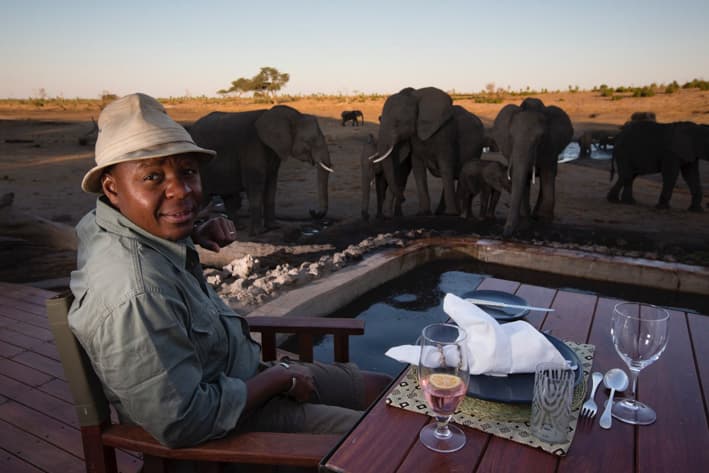
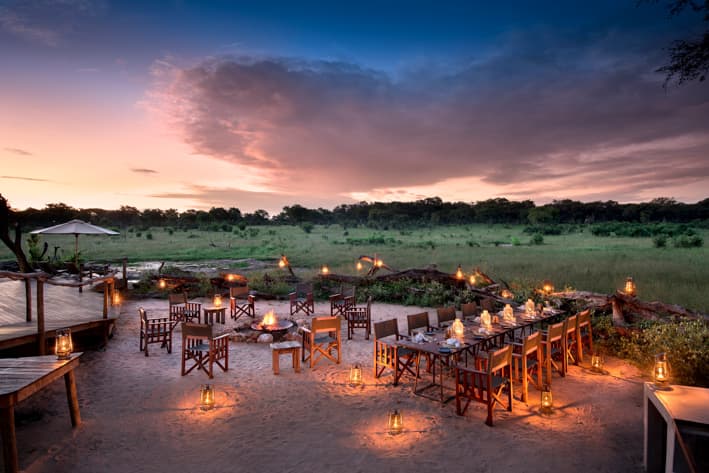
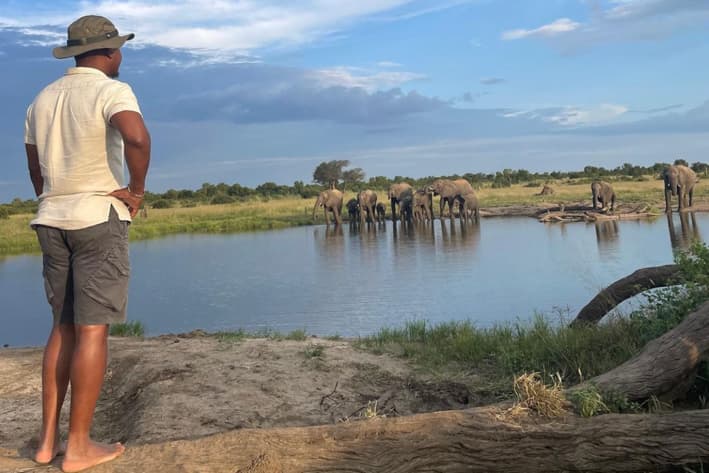
Growing pains
Beks quickly realised that because Zimbabwe was not getting many tourists he needed to open another camp pretty quickly or his fledgling company would be in big financial trouble. “As soon as Somalisa opened I was already negotiating for a concession in Botswana,” he says. “Tourism was at its peak there and within six months I opened another camp which for the first few years really did well and financially saved us, allowing us to support Somalisa.”
Having two camps in two different countries taught Beks that he needed to build and develop broader safari itineraries by bringing complementary camps on board. “In theory it was a good idea, but it didn’t work so well because it was hard to keep everyone aligned and stay in control of the brand and bring it all together with all of us singing off the same hymn sheet,” explains Beks.
“We then started mobile safaris, Zimbabwe started coming back on track and I set up my first camp in Mana Pools – Kanga – but as I was growing this I realised that I couldn’t do it all, so I brought on other guides to invest with us, who wanted to be involved in a bigger safari brand. They took on the responsibility of running the camps so I could really focus on growing the business and build it into an adventurous luxury brand that could compete with other, bigger brands.
“This year is our 16th year of operating and we’re just about to launch our 17th camp – Lolebezi, located in Zambia’s Lower Zambezi National Park. In the background we have been working on fixing a gap in our camp offering – a camp in the deep, true Okavango Delta. So we are working on a project that will see us have a camp in the Okavango by 2023,” adds Beks.
“The last 16 years have been a very exciting journey that’s given us a lot of hurdles to overcome, from the Zimbabwean crisis, the financial meltdown and Ebola to the COVID19 pandemic that we’ve been dealing with for the last two years,” says Beks.
“It’s always challenging but we’re passionate about what we’re doing and we believe in the impact that we’re having in the places we work in. So we do whatever it takes to overcome the challenges, whatever they are.”
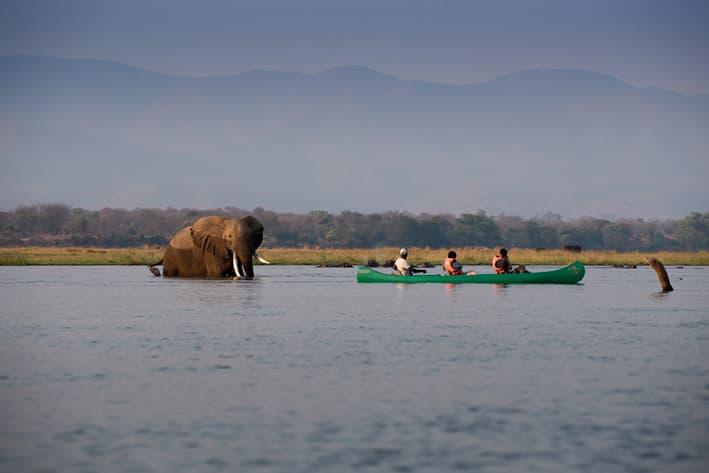
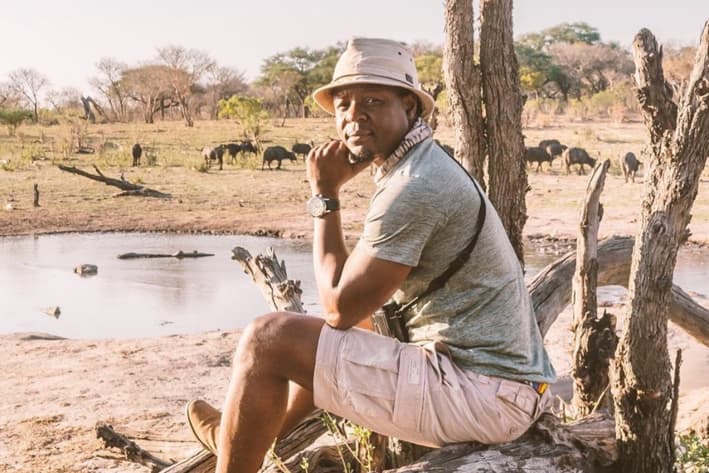
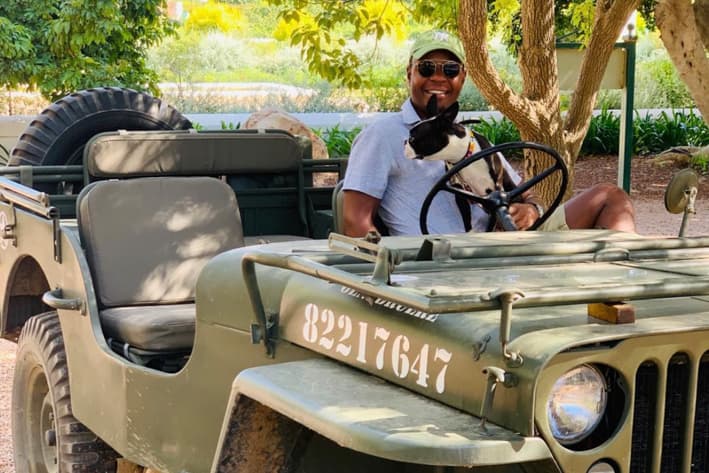
COVID 19 & African Bush Camps 2.0
The pandemic gave Beks the opportunity for reflection and he took the quiet of lockdown to examine the way African Bush Camps does business.
“COVID19 has given us time to slow down and go back to questioning what our purpose is and to redefine that purpose,” he says. “We realised that we are not a pan African company and don’t want to be. We’re running a tight, small network of camps that complement each other in three countries – Zimbabwe, Zambia and Botswana – and we don’t really want to get much bigger than that.
“What the last two years has done is give us the chance to really look after the areas we work in and the people that come from these places and curate relationships with the people we do business with,” adds Beks. “For us, it’s not just about getting the bookings and getting the money – even though we understand that cashflow is very important – it’s about what kind of money we can get into our camps and what that means in terms of partnering and investing more in Africa, so we can have a bigger impact.”
Importantly, COVID19 showed Beks that his business didn’t have the resilience we thought it had.
“As a result, we had to cut back on some of our social impact programmes and at the same time as having diminished budget we had to respond to a crisis. There were certain things that we could not ignore in terms of what was happening in the communities we work in. So that double-edged sword made us feel that going forward we need to build resilience for the future. It’s not a question of if we will have another crisis, but rather when and we want to be prepared for anything.
“So there’s an interesting concept we’re launching that we hope those we do business with will get involved with and partner with us to build. It’s called African Changemakers and it’s really a call to action for the whole safari industry to start making a difference.
“With African Changemakers we’re asking operators and agents who sell our products to invest US$5 from their bottom line for every booking they make with us. We will match that out of our own bottom line and put US$10 into a war chest.
“If all our partners invest with us, there will soon enough be millions in reserves that we didn’t have before that can be channeled where it’s needed. This kind of continual investment into Africa is very important because quite clearly we can’t rely on the cashflow of tourism to deal with future crises.”
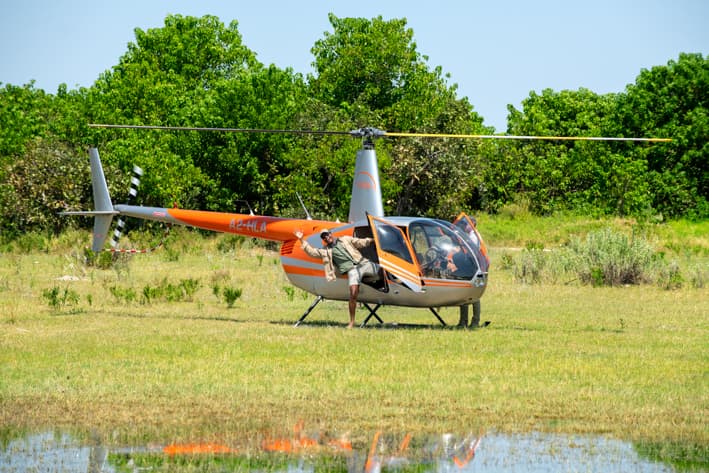
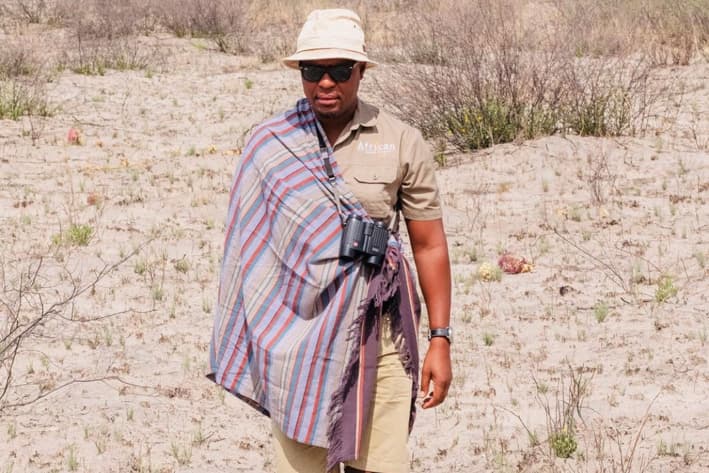
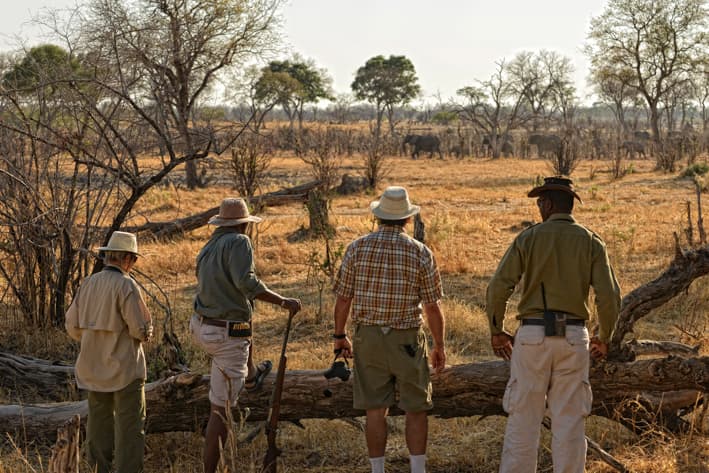
The African Bush Camps Foundation
When Beks began African Bush Camps, he also established The African Bush Camps Foundation, which has grown alongside the business. “It was set up from the start,” he says. We always believed that you don’t gather wealth first and then give it away, you share it as you gather it. I was inspired by Yvon Chouinard of Patagonia and his concept of 1% of sales for the planet.
“We started off giving away $5 for every bednight from our own bottom line. That went up to $10 per bednight over the years. If we do the calculations, we have been consistently achieving 2,5% for nature from our bottom line, which is a huge investment into our foundation, giving it the capacity to administer the various projects and programmes we are involved with.”
Beks explains that this model avoids the need for fundraising, which is fraught with hidden costs.
“If we go out and fundraise we can never assure that the funds we raise go fully to where we want it to go,” explains Beks. “With these organisations that say they are raising $1-billion a year in aid to Africa to resolve Africa’s challenges, what they don’t tell you is that $900-million of that goes into buying fancy vehicles, paying high expert salaries and administration. So in the end only a small percentage goes to those who actually need it.
“We wanted to make sure that our foundation’s costs and expenses were covered by us as a business, we identify the projects that are needed by the communities, start those projects and have the communities take ownership. That’s our way of empowerment.
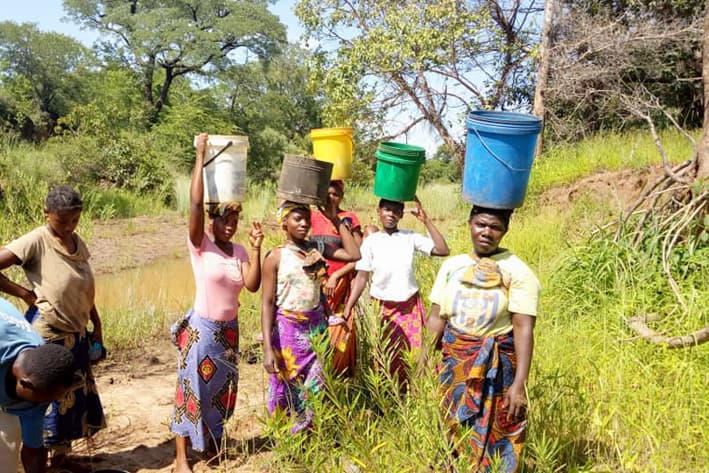
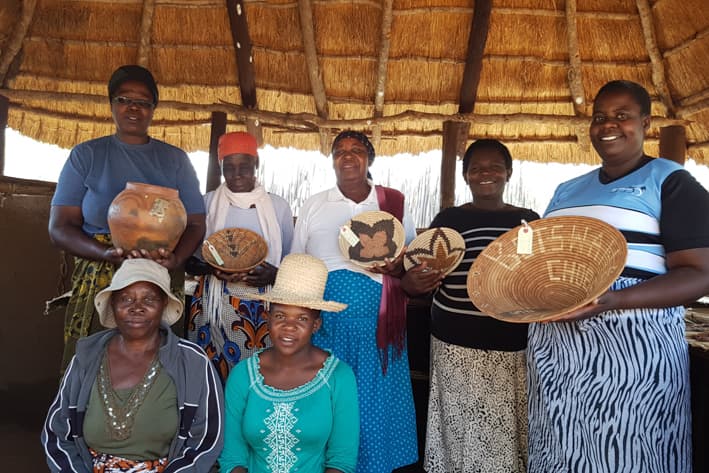
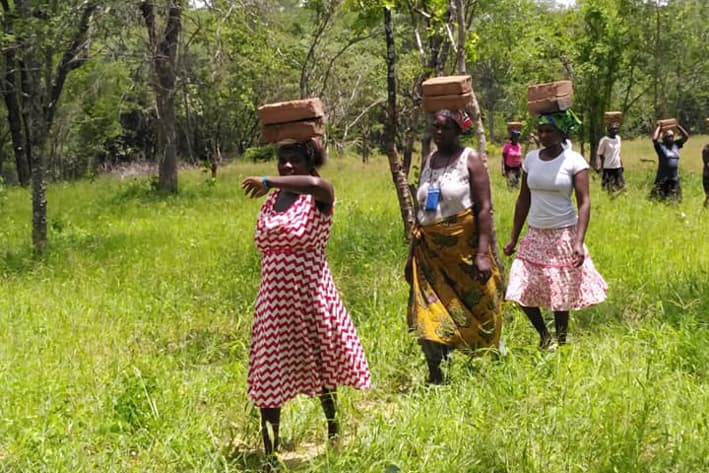
Inspiring the next generation of African entrepreneurs
Beks is very aware that he’s something of a poster boy for black economic empowerment in the tourism industry. His natural humility makes him somewhat ill at ease with it, but he takes his position as a role model very seriously.
“I’m aware that I am often regarded as an example of a black African person who has evolved into a successful businessman and I take my responsibility in that regard very seriously. Through my actions and directly, I try to mentor others like me and show them what is possible, and that you don’t have to have limitations on what you can achieve.
“In order to do this, though, there are certain focusses you have to have. You have to be accountable to others, you have to have role models and mentors, learn from others. The weight on my shoulders is to continue to inspire others to show them what is possible – and where I say others I mean people who come from very simple backgrounds like I do,” says Beks.
“There are thousands of people who come from similar backgrounds to me across Africa, and if I can show them that life is full of possibilities, then that is good. But with that comes the responsibility to put the time in, to interact and talk to people and invest in people. I am concerned that people of colour do not become tokens in the tourism industry but rather effective participants in the tourism economy,” says Beks sagely.
“There are some shining examples out there who inspire me but not nearly enough. I can feel that there is a change happening and I hope that through the discussions we’re having and the different forums we have in the industry that this is something that will be supported.
“We need to educate people and build confidence on both sides, with the young entrepreneurs entering the tourism industry and with the trade itself. The people coming up need to learn the trade and have the confidence to do well in it and those in the trade need to mentor and teach those coming into it and have the confidence to support the businesses they create.
“People need to realise that partnerships are the most powerful and effective way in which we can all make a difference on our planet,” says Beks. “You can achieve more through partnerships than you can on your own. This goes for me, I might add. I have partners in my business who are shareholders and together we have grown much further than we would have done individually.”
